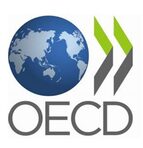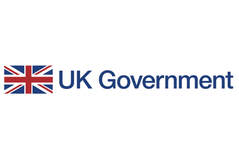|
The UAE will introduce a federal corporate tax on business profits effective for financial years starting on or after 1 June 2023.
His Excellency Younis Haji Al Khoori, Undersecretary of Ministry of Finance (MoF), said: “As a leading jurisdiction for innovation and investment, the UAE plays a pivotal role in helping businesses grow, locally and globally. The certainty of a competitive and best in class Corporate Tax regime, together with the UAE's extensive double tax treaty network, will cement the UAE's position as a world-leading hub for business and investment. The introduction of a corporate tax regime will help the UAE achieve its strategic ambitions and incentivize businesses to establish and expand their activities in the UAE." With a standard statutory tax rate of 9% and a 0% tax rate for taxable profits up to AED 375,000 to support small businesses and startups, the UAE corporate tax regime will be amongst the most competitive in the world. See Announcement Countries continue the successful implementation of international standards on harmful tax practices, the OECD has said.
At its November 2021 meeting, the Forum on Harmful Tax Practices (FHTP) agreed new decisions on 9 preferential tax regimes as part of the implementation of the BEPS Action 5 minimum standard, bringing the total number of reviewed regimes since the start of the BEPS Project to 317. The FHTP concluded on regimes as follows: Two newly introduced regimes were concluded as “not harmful” (Hong Kong (China) and Lithuania). Two regimes are abolished (Mauritius). In addition, Qatar amended its three preferential regimes to be in line with the standard and therefore, these regimes are “not harmful (amended)”. Costa Rica made a commitment to amend recent legislative changes that were made to its Free trade zone regime and therefore, regime is now “in the process of being amended”. Finally, one new regime is now under review (Albania). See Announcement On January 20, 2022, the OECD released the 2022 edition of the OECD Transfer Pricing Guidelines for Multinational Enterprises and Tax Administrations.
This latest edition consolidates into a single publication the changes to the 2017 edition of the Transfer Pricing Guidelines resulting from:
See Announcement The UK Government is consulting on the technical guidance for the government’s new policy: Notification of uncertain tax treatment by large business.
The policy has been designed to reduce the legal interpretation portion of the tax gap by helping HMRC identify more legal interpretation issues at an earlier stage. An initial draft of the technical guidance was published in August 2021, explaining how HMRC will interpret and apply the Uncertain Tax Treatment (UTT) legislation and to help businesses comply with the new legislative requirements. The consultation closes on February 1, 2022. See Announcement During its meeting on 12 January 2022, the Swiss Federal Council decided to implement the minimum tax rate for certain companies agreed by the OECD and G20 member states by means of a constitutional amendment.
Based on that decision, a temporary ordinance should ensure that the minimum tax rate comes into force on 1 January 2024. The law will be enacted subsequently in the ordinary manner. A minimum tax rate of 15% for multinational companies with turnover of more than EUR 750 million has been agreed by 137 countries. If a country maintains lower tax rates, other countries can impose an additional tax on those undertaxed companies. The incorporation of a minimum tax rate into Swiss law ensures that large companies do not get involved in foreign proceedings. See Announcement The Australian Taxation Office will be undertaking a review of the advance pricing arrangement (APA) program in 2022.
As part of the review, the ATO will consider how to tailor the APA process to better align to risk and taxpayer behavioural indicators. The ATO will consult extensively with taxpayers and advisors as part of the process to understand the market perspectives of the APA product, why it is appealing, and what arrangements are viewed as most desirable for an APA. See Announcement The tax treaty between Singapore and Jordan entered into force on 30 December 2021.
The tax treaty was signed on 14 July 2021. The treaty will benefit businesses in both Singapore and Jordan as well as boost bilateral trade and investment flows between the two countries, the Singapore's Finance Ministry said. The full text of the tax treaty is available on the Inland Revenue Authority of Singapore’s website. See Announcement The tax treaty between Israel and the United Arab Emirates entered into force on 29 December 2021.
The treaty was signed 31 May 2021. The treaty applies from 1 January 2022. Tunisia has committed to implement the international Standard for Automatic Exchange of Financial Account Information in Tax Matters (AEOI) by 2024.
This commitment makes Tunisia the 121st Global Forum member to commit to start AEOI by a specific date, and the tenth African country to do so. Tunisia will also benefit from the expertise of the Swiss Federal Tax Administration as part of a pilot project aimed at assisting the country in its implementation of AEOI. See Announcement |
Archives
March 2024
|
COMTAX ABC/o Ekonomiforetaget Baehring Dahl AB
Berga Alle 3 25452 Helsingborg Sweden |
CONTACTTel.: +46 46 590 07 70
E-mail: support(@)comtaxit.com |
INFORMATION |
© COPYRIGHT 1985 - 2024 COMTAX AB. ALL RIGHTS RESERVED.








